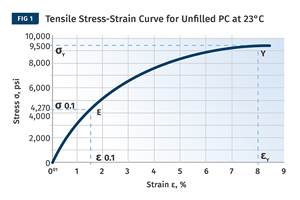ThermHex Waben and Fraunhofer Lead Research into Honeycomb Production
The EconCore ThermHex technology is being advanced through long-term collaboration.
Over the last decade, we have steadily reported on new developments in the ThermHex thermoplastic honeycomb technology patented by Belgium’s EconCore. Meanwhile, EconCore’s Germany subsidiary ThermHex Waben GmbH, producer of PP honeycomb cores for economic sandwich panels and parts, and the Fraunhofer Institute for Microstructure of Materials and Systems IMWS, both based in Halle, have been long-term collaborators in conducting several research and development projects. Their focus is on the development of production and processing technology for series production of honeycomb cores and the Organosandwich.
A semi-finished product, the Organosandwich, consists of two very thin face sheets of thermoplastic fiber composites (organosheets) which are separated by a thermoplastic honeycomb core. It has been shown to provide high stiffness at minimal weight, but without additional ribs for stiffening.
These semi-finished products become particularly cost-efficient when applied in-line to the honeycomb core in a continuous process and bonded to it. In subsequent production steps, they are further processed into components, e.g., thermoformed and functionalized by injection molding within very short cycle times. The corresponding component production technology was developed by Fraunhofer IMWS under the brand name TS-molding.

The TS-molding technology, developed as the outcome of this research, is expected to contribute to ThermHex’s highly-automated production process and enable the company to meet their targets of a total sales volume of 2.2 million lbs of Organosandwich and honeycomb cores for this year, and a further annual growth of 10% to 20% in years to come.
As previously reported, EconCore’s ThermHex process enables thermoplastic honeycomb cores to be produced in continuous in-line production. After extrusion, the web is rotationally vacuum-formed, folded, laminated and cut to the length desired by the customer. In traditional processes, every layer of honeycomb must be cut individually from a block and then laminated.
This makes the conventional production methods for honeycomb cores both complex and expensive – with ThermHex, all production steps take place on a single production line. The process has been shown to be more resource-efficient and significantly less expensive than conventional honeycomb core manufacturing processes.
At the production facility in Halle, honeycomb cores with a thickness of 0.2 in/3 mm.to 1.8 in/30 mm and very small cell sizes for better surface qualities and an individual length of up to 19.69 ft/6 meters can be produced. The honeycomb cores are processed in particular by the fiber-composite industry into sandwich panels and components, which are used in applications such truck bodies, in automotive interior, or in prefabricated bathrooms and swimming pools.
Such sandwich construction is said to offer an enormous potential for saving weight. By using a lightweight core material that keeps two thin face layers apart, weight savings of over 80% are possible compared with a monolithic construction. In addition to the weight savings, significant material cost savings are also possible.
According to the collaborators, only ThermHex’s process of honeycomb production on a single production line can enable the cost-efficient, continuous production of Organosandwich semi-finished products.
Mona Boche-Würfel, the marketing and communications manager at ThermHex said: “This collaboration between ThermHex and Fraunhofer IMWS will provide industry leading changes to honeycomb technology. The technology that will be developed through the exciting collaboration will enable the mass production of almost CO2-neutral sandwich panels within very short cycle times as part of a highly cost-efficient process.”
ThermHex PP honeycomb cores with thermoplastic top layers are used in the automotive industry. Commercial applications include the trunk floor of the Maserati Ghibli and the Jaguar F-Type or the trunk cover of the Toyota Prius PHV.
The Organosandwich joint research project from ThermHex Waben and Fraunhofer IMWS was funded within the EFRE program by the European Union via Investitionsbank Saxony-Anhalt.
Related Content
Lanxess and DSM Engineering Materials Venture Launched as ‘Envalior’
This new global engineering materials contender combines Lanxess’ high-performance materials business with DSM’s engineering materials business.
Read MorePrices Up for PE, PP, PS, Flat for PVC, PET
Trajectory is generally flat-to-down for all commodity resins.
Read MoreHow to Optimize Injection Molding of PHA and PHA/PLA Blends
Here are processing guidelines aimed at both getting the PHA resin into the process without degrading it, and reducing residence time at melt temperatures.
Read MoreThe Effects of Stress on Polymers
Previously we have discussed the effects of temperature and time on the long-term behavior of polymers. Now let's take a look at stress.
Read MoreRead Next
For PLASTICS' CEO Seaholm, NPE to Shine Light on Sustainability Successes
With advocacy, communication and sustainability as three main pillars, Seaholm leads a trade association to NPE that ‘is more active today than we have ever been.’
Read MoreBeyond Prototypes: 8 Ways the Plastics Industry Is Using 3D Printing
Plastics processors are finding applications for 3D printing around the plant and across the supply chain. Here are 8 examples to look for at NPE2024.
Read More
























